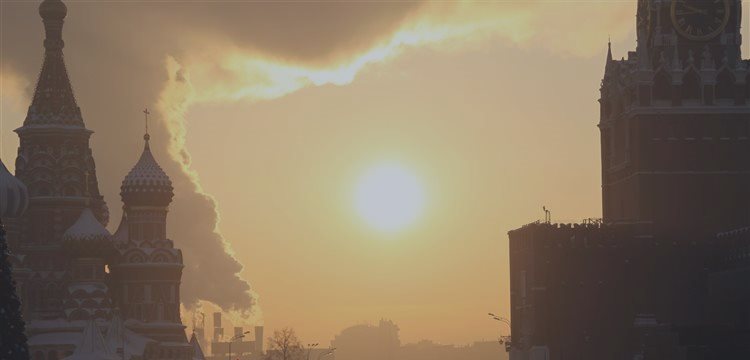Despite all factors making Russia utterly unpopular among investors - like a raft of sanctions, plunging currency, junk status from ratings agencies - MarketWatch columnist reflects on why it is high time to invest in Russia.
The thing is that Russian market exchange-traded funds (ETFs) are among the best performers year to date. They are up 20% - and 40% from lows in December. These kinds of returns show the value of thinking outside the box as an investor, and going against the crowd, says MarketWatch's Michael Brush. He suggests it is not too late to buy Russia.
The country's stock market still
looks cheap, with a price-to- earnings ratio of about 5. If you buy
Russia now, you’re very likely to outperform U.S. stock markets over the
medium term.
Mr Brush himself own the iShares MSCI Russia Capped Index Fund, an ETF. Other options include the Market Vectors Russia ETF and the Market Vectors Russia Small-Cap ETF. And he gives us the reasons why it makes sense to go long on investments in Russia.
1. Investors expect the very worst in the Ukraine scenario, but it won't happen.
A number of analysts say, a part of Putin’s strategy is to use the Ukraine conflict as a wedge issue to separate the U.S. from Europe, and European countries from each other, by appearing to force a conflict. But Wealth Enhancement Group chief investment officer Jim Cahn doubts Putin will ever let the things fo too far, pushing to the point of outright war with the West, or that the West would take the bait.
If he’s right, the Russian stock market looks cheap, because this kind of escalation is what’s priced in.
“There is a lot of job preservation going on.”
“A lot of investors are pulling money out so they don’t get stuck in a situation where they look stupid. If we get to the point where there is no further escalation, you could have 30% to 50% return in Russian equities.”
2. Look for a "buy" signal in the mass media.
Just remember when The Economist put an ominous
image of Vladimir Putin on its cover for a story called “Putin’s War on
the West.” Mr Brush advises us to keep in mind
that their habit of serving as contrarian market indicators does not
mean they are dumb.
The media try to serve up stories that will get the most attention, thus they are aware of when negativity is peaking on a theme.
When magazines highlight the theme on the cover, and it naturally
corresponds to when investors are most negative on the theme.
3. Putin actually wants to make peace with the West
Jim Rogers has been bullish on Russia for months, as he thinks Russia has shifted gears and chosen to be more open and friendly towards doing business with the West. He mentions the country’s commitment to a convertible currency; infrastructure improvements like upgrades to communications systems and the Trans-Siberian railroad; the completion of a railroad to the North Korean port of Rason; the country’s relatively low debt level; and government programs offering co-investment alongside foreigners who put money into local startups and other companies.
How does he explain the Ukranian escalation? Putin has little choice but to get defensive with Ukraine, because of
its perceived economic importance, and its strategic significance as a
buffer against incursions from the West, historically. But the
background attitude change in doing business with the West is still
alive and well.
4. Oil rally started
As Barclays economist Eldar Vakhitov points out, energy is key to Russia’s economy. It accounts for 25% of its gross domestic product, 68% of exports and 50% of federal budget revenues. Oil prices are likely to go up, as supply destruction caused by lower prices, natural declines in reserves globally, and economic growth tilt the balance in the oil market to support higher prices.
Yes or still no?
Still, there are analysts, who are bearish on Russian equities. They think there are too many risks.
Many analysts praise Russia's big companies who have enough strength to come out of the slowdown much stronger, because they have taken market share from weaker competitors along the way. A good example is Sberbank,
the largest retail bank in
Russia, and one of the cheapest banks in the country. It trades at 0.6
times book value even though it has a healthy return on equity of 20%. The bank is likely to stay profitable this year, despite the recession
in Russia.
One risk here is that the bank is shut off to foreign capital markets because of Ukraine-related sanctions. However, being 50% owned by the state, it does not need to raise capital. And if it does, it can do so in Russian capital markets.
Similar things can be said about Russia's Google - Yandex. The company faces robust growth prospects, because Internet usage still has a lot of room to grow in Russia. The company looks cheap for an Internet stock, trading at 19.5 times 2016 earnings.
Rogers likes Russian government bonds for two reasons. First, they pay yields in the 10% to 14% range. Next, he doesn’t think the ruble will stay weak forever. As it eventually strengthens, earnings on Russian bonds will get translated into more dollars, or whatever your preferred local currency is.



